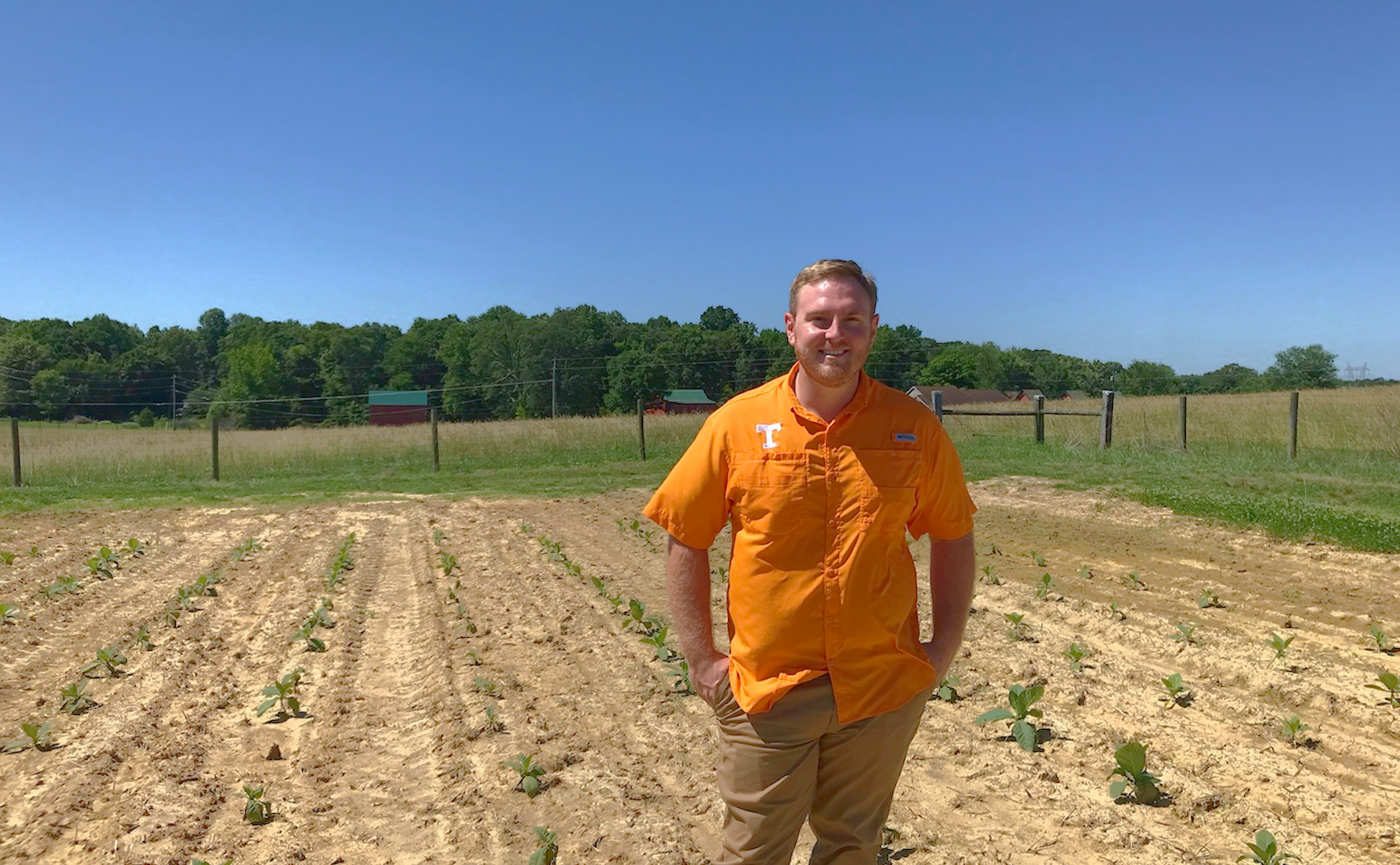
Learn More About Richmond’s Leadership in Tobacco, Hemp and Specialty Crop Research and Outreach
KNOXVILLE, Tenn. – Mitchell Richmond has joined the Department of Plant Sciences at the University of Tennessee Institute of Agriculture as an assistant professor and tobacco, hemp and specialty crop Extension specialist. Richmond earned his doctoral degree in integrated plant and soil science from the University of Kentucky and has since worked at the Canadian Tobacco Research Foundation. Learn more about Richmond and his work at UTIA in the following Q and A.
What are your research goals?
My research goals include increasing producer profitability, harm reduction and generating more information about tobacco, hemp and other specialty crops.
I would like to help make growers more profitable producing crops. Tobacco and hemp, specifically, are very laborious. Per acre, tobacco can garner 150 to 250 labor hours, and hemp requires about 400. In my view, a dollar saved is a dollar earned, and finding ways to boost labor efficiency will benefit the bottom line.
Looking specifically at tobacco, the majority of my research efforts are in labor and harm reduction. A recent topic during the past couple decades is reducing tobacco-specific nitrosamines (TSNA). Finding different production methods, whether it be fertility or topping practices, can influence TSNA levels at the end of season.
There are several studies this year focusing on hemp. One is a multi-state collaboration researching 17 different varieties for dual-purpose use as fiber and grain. Another is a floral experiment evaluating the influence of nitrogen fertility on the floral/cannabinoid production model.
Who are your stakeholders?
Different producers across Tennessee and the southeastern region of the United States and industry representatives can benefit from my work, along with government professionals and regulators and students at the University of Tennessee.
With hemp being an emerging crop in Tennessee, what problems are producers facing?
The cost of production and access to a stable market are major difficulties. So, I am looking to innovate production techniques. Production systems that utilize the crop for fiber, grain or as a dual-purpose crop is of interest. This would give the producer alternative hemp products to market. We must also find varieties that continually adhere to federal regulations associated with the latest Farm Bill.
How do you connect to industry?
Marketing a crop is very important to producers. I try to stay in touch with industry representatives at conferences, which are venues for sharing the latest scientific information. These collaborations provide industry support for applied research related to grower decisions. Industry is concerned with making a more profitable, higher-yielding and quality crop with harm reduction efforts in mind.
Why are students important to your work?
I believe training the next generation of agriculturalists is an important task for all of us at the University of Tennessee. In the Department of Plant Sciences, there are a lot of opportunities for undergraduate students to get involved in Extension and research, whether that be internship programs or working for a faculty member. In higher level degree work, there are graduate assistantships, where students learn how faculty conduct applied research that is distributed by Extension.
The ability to digest credible information and form coherent decision-making skills is a major part of becoming a critical thinker. The department encourages students to seek out opportunities to hone these skills.
What is your favorite thing about the Department of Plant Sciences?
Considering the many different appointments faculty have across Extension, research and teaching, the department is unique. It encourages collaboration and everyone in the department is able to experience multiple perspectives and discuss research ideas and curriculum.
To learn more about Richmond and others in the Department of Plant Sciences, watch the Meet Our People YouTube series.
Find out more about the research and outreach efforts Richmond conducts via Twitter, @utagronomy, and at his website, coming soon, specialtycrops.tennessee.edu.
Follow @UTPlantSciences on Facebook, Twitter, Instagram and YouTube for posts about departmental news.
Through its mission of research, teaching and extension, the University of Tennessee Institute of Agriculture touches lives and provides Real. Life. Solutions. utia.tennessee.edu.